Explanation of my 10 Ballon d'Or 1971
This is my ranking, my opinion on the Ballon d'Or of the year 1971. This ranking is based on the calendar year, not the season. What counts for this ranking is the player's regularity over the calendar year, the number of matches played, the ability to raise his level in big games, statistics (goals, assists, clean sheets, goals conceded, etc.) and trophies won (collective and individual).
#10 Piet Keizer
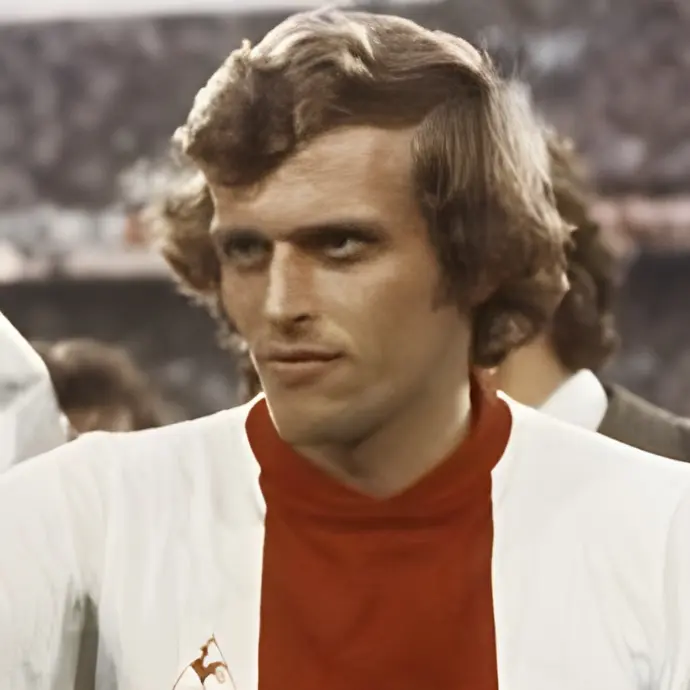
- Age : 27/28 years old
- Club : Ajax Amsterdam
- Statistics : 52 games, 21 goals, 16 assists
- Trophies : Champions League, Eredivisie Vice-Champion, Dutch Cup
- Individual Awards : Champions League TOTY, Eredivisie TOTY
In the calendar year 1971, Piet Keizer was a key figure for Ajax Amsterdam during one of the club’s most dominant eras. Playing as a left winger, he featured in 31 Eredivisie matches, scoring 14 goals, and helped Ajax secure the Dutch league title with an almost perfect record: 27 wins, 3 draws, and just 1 loss. He also played a crucial role in Ajax’s European campaign, contributing to their victory in the 1970–71 European Cup, where they defeated Panathinaikos 2–0 in the final. Known for his technical skill and tactical intelligence, Keizer was part of the legendary Ajax trio alongside Johan Cruyff and Johan Neeskens, and his performances in 1971 solidified his reputation as one of the finest wingers of his generation.
#9 Josip Skoblar
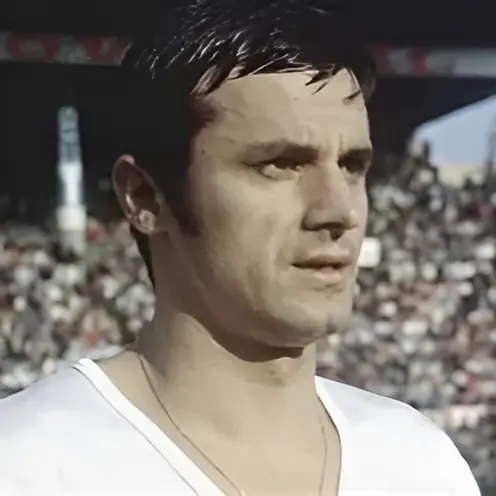
- Age : 29/30 years old
- Club : Olympique de Marseille
- Statistics : 48 games, 45 goals, / assists
- Trophies : French League
- Individual Awards : French League POTY, French League Foreign POTY, French League TOTY, French League Golden Shoe (44 goals)
In the calendar year 1971, Josip Skoblar reached the pinnacle of his career with Olympique de Marseille, delivering one of the most extraordinary goal-scoring seasons in European football history. He scored an astonishing 44 goals in 36 league matches—a record that still stands in France’s top division—and added 6 more goals in other competitions, totaling 50 goals across all formats during the season. His prolific form earned him the European Golden Shoe, making him the only player from the French league to ever win the award. Skoblar’s goals were instrumental in leading Marseille to the Ligue 1 title, their first in 23 years, and he became a legend at the club, known as “l’Aigle Dalmate” (the Dalmatian Eagle) for his sharp finishing and fearless style3.
#8 Luis Artime
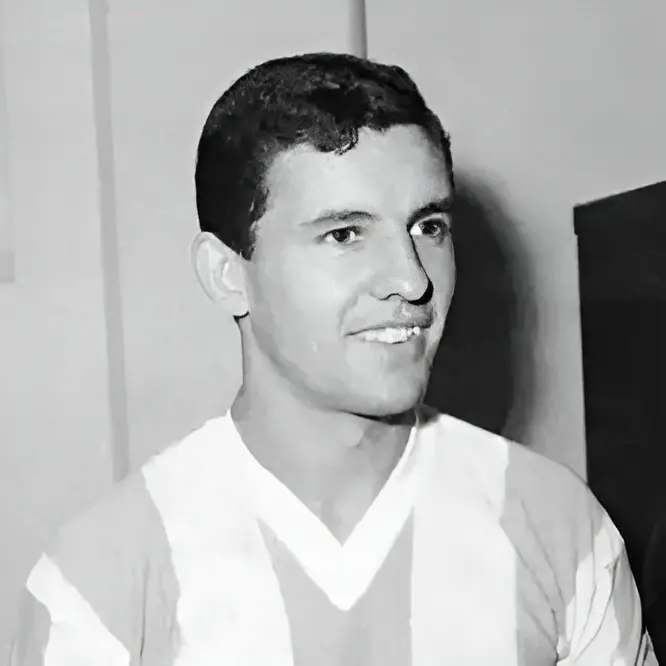
- Age : 32 years old
- Club : Nacional Montevideo
- Statistics : 33 games, 32 goals, / assists
- Trophies : Copa Libertadores, Intercontinental Cup, Uruguayan Championship
- Individual Awards : Copa Libertadores POTY, Copa Libertadores TOTY, Copa Libertadores Golden Shoe (10 goals), Uruguyan League TOTY, Uruguayan League Golden Shoe (16 goals)
In the calendar year 1971, Luis Artime was at the peak of his career with Club Nacional de Football in Uruguay. He led the team to a historic double, winning both the Copa Libertadores and the Intercontinental Cup. Artime was the top scorer of the Copa Libertadores, scoring crucial goals including all three goals for Nacional across the two-legged Intercontinental final against Panathinaikos. Domestically, he also helped Nacional secure the Uruguayan league title, becoming the league’s top scorer for the third consecutive year, with 16 goals in the 1971 season. Known for his clinical finishing and positional instinct, Artime’s performances in 1971 solidified his reputation as one of South America’s most lethal strikers.
#7 Günter Netzer
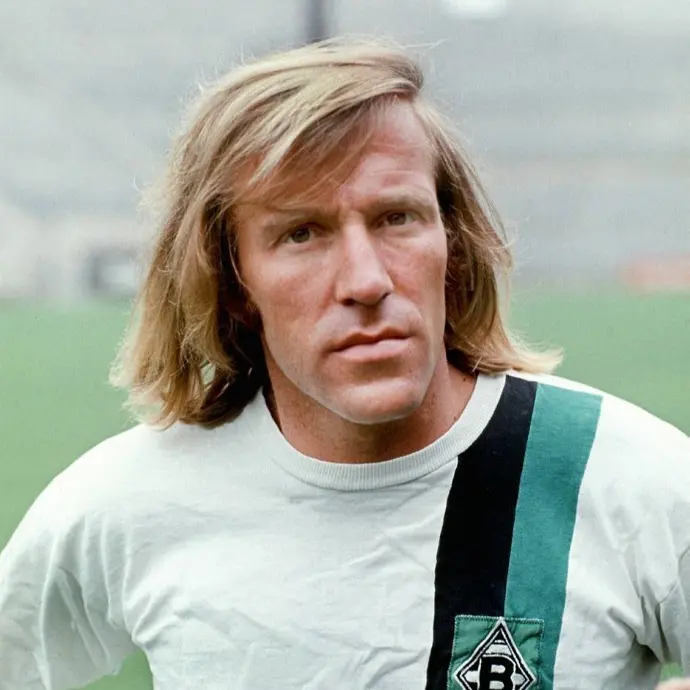
- Age : 26/27 years old
- Club : Borussia M'gladbach
- Statistics : 46 games, 15 goals, / assists
- Trophies : Bundesliga
- Individual Awards : Bundesliga POTY, Bundesliga TOTY
In the calendar year 1971, Günter Netzer was at the heart of Borussia Mönchengladbach’s midfield during a golden era for the club. He played a pivotal role in helping the team retain the Bundesliga title, making Borussia the first club to win back-to-back German championships. In the 1971 year, Netzer scored 15 goals and provided numerous assists from his deep-lying playmaker role. Known for his elegant passing, long-range shooting, and tactical intelligence, he also featured in the European Cup, where Mönchengladbach famously beat Inter Milan 7–1 in a match later annulled and replayed.
#6 Berti Vogts
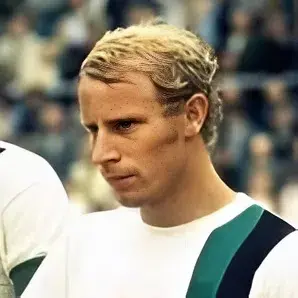
- Age : 24 years old
- Club : Borussia M'gladbach
- Statistics : 46 games, 1 goal, / assists
- Trophies : Bundesliga
- Individual Awards : German POTY, Bundesliga TOTY
In the calendar year 1971, Berti Vogts was at the peak of his defensive prowess with Borussia Mönchengladbach, playing a vital role in the club’s continued dominance in German football. Throughout the year, he made 19 Bundesliga appearances, scoring 1 goal and playing over 1,700 minutes. His relentless energy, aggressive marking, and tactical discipline earned him the nickname “Der Terrier”, and he was instrumental in helping Mönchengladbach secure their second consecutive Bundesliga title—a first in German football history. Vogts was also recognized individually, being named German Footballer of the Year in 1971, a testament to his consistency and influence on the pitch.
#5 Tostão
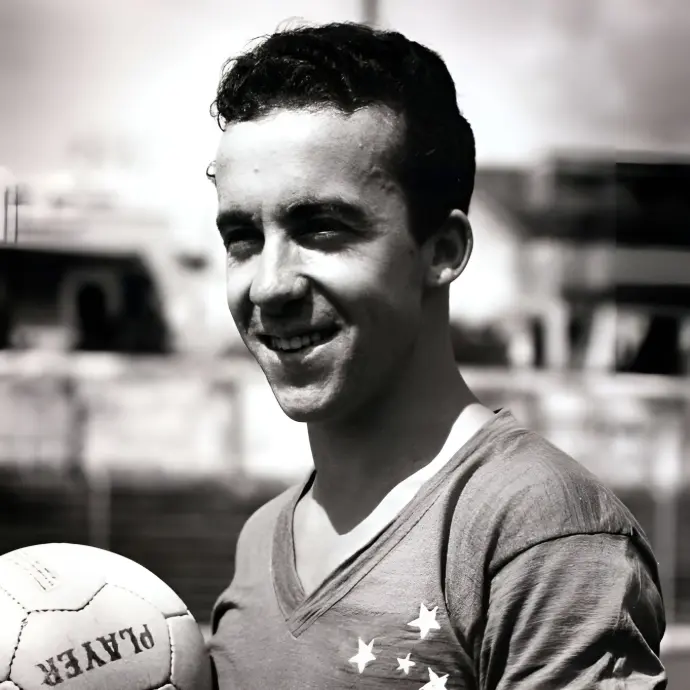
- Age : 24 years old
- Club : Cruzeiro
- Statistics : 56 games, 19 goals, / assists
- Trophies : Copa Roca
- Individual Awards : South American POTY, South American TOTY
In the calendar year 1971, Tostão was one of the most celebrated footballers in South America, playing for Cruzeiro and the Brazilian national team. Despite lingering concerns from a previous eye injury, he delivered a strong year, helping Cruzeiro compete at the top level in Brazil’s newly formed Campeonato Nacional de Clubes. He scored consistently throughout the year and was named South American Footballer of the Year in 1971. Internationally, he played 5 matches for Brazil, scoring 1 goal, and won the Copa Roca against Argentina. His intelligent movement, vision, and ability to play as a deep-lying forward continued to define his unique role as one of football’s earliest “false nines.”
#4 George Best
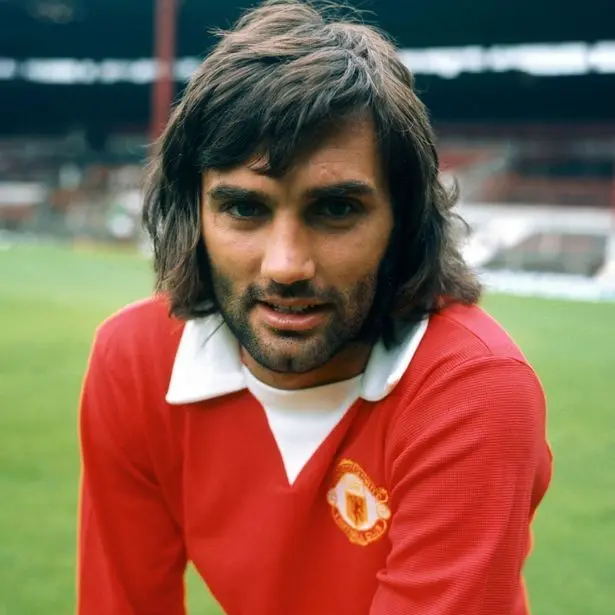
- Age : 24/25 years old
- Club : Manchester United
- Statistics : 51 games, 34 goals, / assists
- Trophies : Finalist British Home Championship
- Individual Awards : Premier League TOTY
In the calendar year 1971, George Best remained a central figure at Manchester United, though his performances reflected both brilliance and growing turbulence. On the pitch, he played in over 51 matches across all competitions, scoring 34 goals, continuing to dazzle with his dribbling, creativity, and flair. However, 1971 also marked the beginning of a more erratic phase in his career, with increasing off-field distractions and disciplinary issues. Despite this, Best was still widely regarded as one of the most talented players in the world, and his influence on Manchester United’s attacking play remained significant.
#3 Gerd Müller
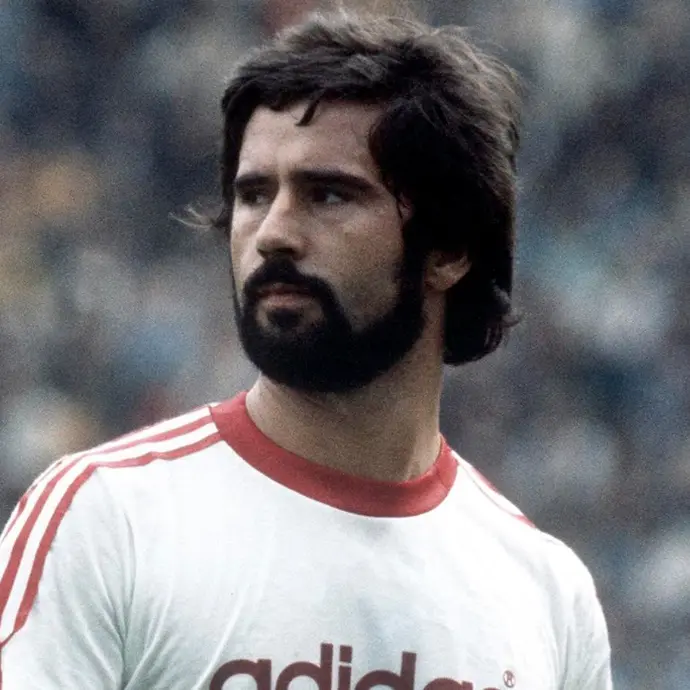
- Age : 25/26 years old
- Club : Bayern Munich
- Statistics : 53 games, 56 goals, 14 assists
- Trophies : Bundesliga Vice-Champion, German Cup
- Individual Awards : Bundesliga TOTY
In the calendar year 1971, Gerd Müller solidified his status as one of football’s most lethal strikers. Playing for Bayern Munich, he continued his astonishing scoring form, helping the club win the DFB-Pokal (German Cup) that year. Although Bayern finished as Bundesliga runners-up, Müller’s individual brilliance was undeniable. He was the Bundesliga’s top scorer for the 1970–71 season, a title he would reclaim with even greater dominance the following year. His goal-scoring prowess was not confined to domestic competitions—he also shone in European tournaments, contributing crucial goals in the European Cup.
#2 Franz Beckenbauer
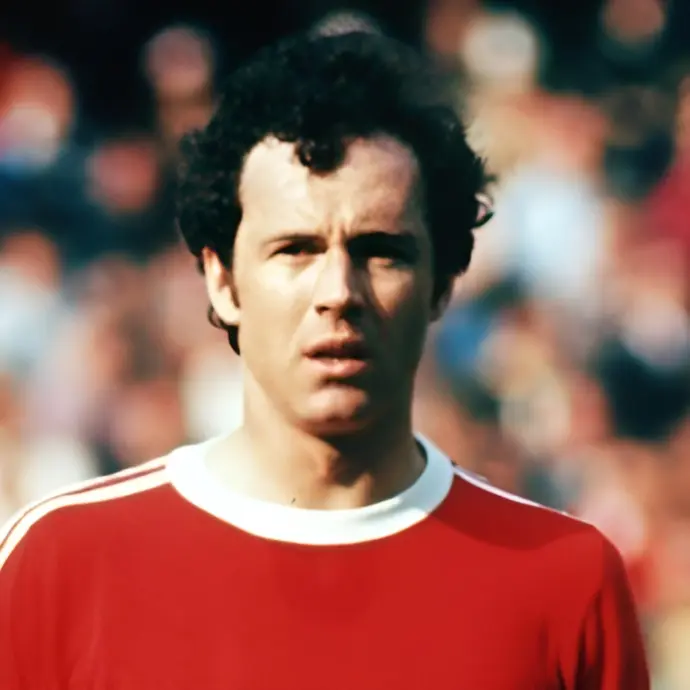
- Age : 26/27 years old
- Club : Bayern Munich
- Statistics : 54 games, 10 goals, 5 assists
- Trophies : Bundesliga Vice-Champion, German Cup
- Individual Awards : Bundesliga TOTY
In the calendar year 1971, Franz Beckenbauer continued to redefine the role of the modern defender with his commanding presence and elegant style of play. As captain of Bayern Munich, he led the team to a DFB-Pokal triumph and a strong Bundesliga campaign, finishing second in the league. Beckenbauer’s influence extended beyond club football—he was also a central figure for the West German national team, orchestrating play from the back with his trademark composure and vision. His performances earned him a high placement in the 1971 Ballon d'Or rankings, reflecting his status as one of the most complete and intelligent players of his generation.
Winner : Johan Cruyff
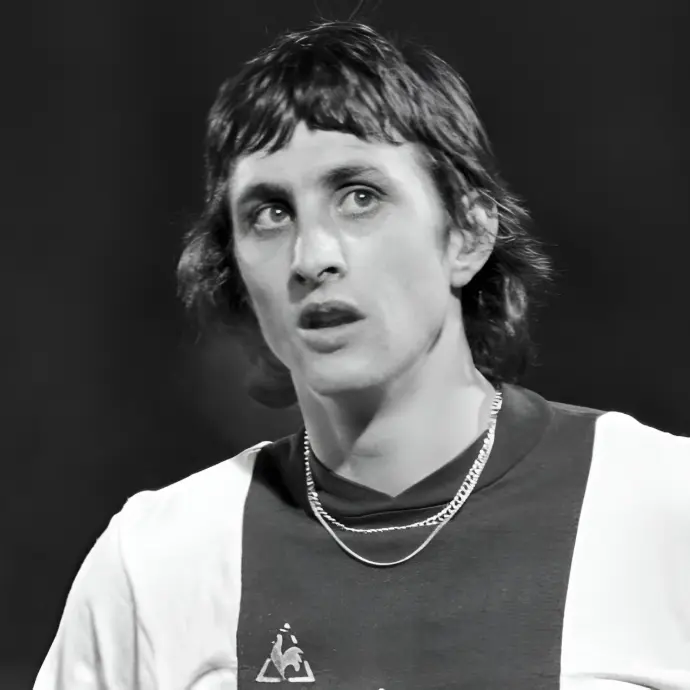
- Age : 23/24 years old
- Club : Ajax Amsterdam
- Statistics : 48 games, 29 goals, 30 assists
- Trophies : Champions League, Eredivisie Vice-Champion, Dutch Cup
- Individual Awards : Champions League TOTY, Eredivisie TOTY
In the calendar year 1971, Johan Cruyff was at the heart of a footballing revolution, orchestrating Ajax’s rise to European dominance and embodying the philosophy of “Total Football.” As the creative engine and captain of Ajax, Cruyff led the club to their first European Cup triumph in June 1971, defeating Panathinaikos in the final. His vision, dribbling, and tactical intelligence made him a nightmare for defenders and a dream for teammates. That same year, he also helped Ajax secure the Eredivisie title, further cementing their domestic supremacy. Cruyff’s performances earned him a top-three finish in the 1971 Ballon d’Or rankings, a testament to his growing influence on the global stage.